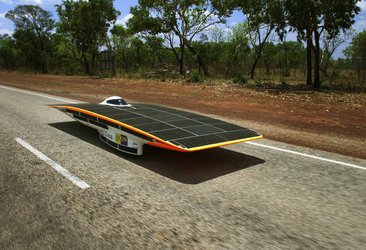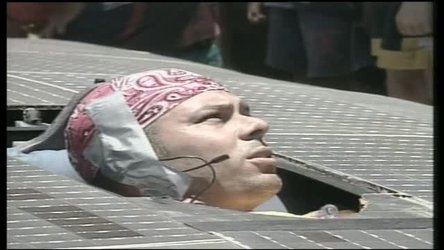Accept all cookies Accept only essential cookies See our Cookie Notice

About ESA
The European Space Agency (ESA) is Europe’s gateway to space. Its mission is to shape the development of Europe’s space capability and ensure that investment in space continues to deliver benefits to the citizens of Europe and the world.
Highlights
ESA - United space in Europe
This is ESA ESA facts Member States & Cooperating States Funding Director General Top management For Member State Delegations European vision European Space Policy ESA & EU Space Councils Responsibility & Sustainability Annual Report Calendar of meetings Corporate newsEstablishments & sites
ESA Headquarters ESA ESTEC ESA ESOC ESA ESRIN ESA EAC ESA ESAC Europe's Spaceport ESA ESEC ESA ECSAT Brussels Office Washington OfficeWorking with ESA
Business with ESA ESA Commercialisation Gateway Law at ESA Careers Cyber resilience at ESA IT at ESA Newsroom Partnerships Merchandising Licence Education Open Space Innovation Platform Integrity and Reporting Administrative Tribunal Health and SafetyMore about ESA
History ESA Historical Archives Exhibitions Publications Art & Culture ESA Merchandise Kids Diversity ESA Brand Centre ESA ChampionsSpace in Member States
Find out more about space activities in our 23 Member States, and understand how ESA works together with their national agencies, institutions and organisations.
Science & Exploration
Exploring our Solar System and unlocking the secrets of the Universe
Go to topicAstronauts
Missions
Juice Euclid Webb Solar Orbiter BepiColombo Gaia ExoMars Cheops Exoplanet missions More missionsActivities
International Space Station Orion service module Gateway Concordia Caves & Pangaea BenefitsLatest
Space Safety
Protecting life and infrastructure on Earth and in orbit
Go to topicAsteroids
Asteroids and Planetary Defence Asteroid danger explained Flyeye telescope: asteroid detection Hera mission: asteroid deflection Near-Earth Object Coordination CentreSpace junk
About space debris Space debris by the numbers Space Environment Report In space refuelling, refurbishing and removingSafety from space
Clean Space ecodesign Zero Debris Technologies Space for Earth Supporting Sustainable DevelopmentLatest
Applications
Using space to benefit citizens and meet future challenges on Earth
Go to topicObserving the Earth
Observing the Earth Future EO Copernicus Meteorology Space for our climate Satellite missionsCommercialisation
ESA Commercialisation Gateway Open Space Innovation Platform Business Incubation ESA Space SolutionsEnabling & Support
Making space accessible and developing the technologies for the future
Go to topicBuilding missions
Space Engineering and Technology Test centre Laboratories Concurrent Design Facility Preparing for the future Shaping the Future Discovery and Preparation Advanced Concepts TeamSpace transportation
Space Transportation Ariane Vega Space Rider Future space transportation Boost! Europe's Spaceport Launches from Europe's Spaceport from 2012Latest
Solar Powered Car VNR
This programme features a revolutionary concept car moulded from space plastics is on its way from the Netherlands to the World Solar Challenge, a race for solar-powered vehicles across Australia, taking place in November.
The 'Alpha Centauri Nuna' car is expected to be the most effective solar vehicle ever built, capable to drive at 160kph and more. Powered only by the sun, it relies heavily upon high-performance plastics developed for satellites. Also the car's solar cells use space technology as they are based on those used to power the International Space Station
Designed by a team of Dutch students from the Universities of Delft and Amsterdam, the car is being co-sponsored by the Association of Plastics Manufacturers in Europe (APME), the European Space Agency ESA and the Dutch energy company, NUON.
The 5-minute A-roll contains split audio with an English guide track and is complemented by a longer B-roll with clean international sound.
Camera script
A-roll voiceover
This unique, European car may hold the solution to reducing harmful car exhaust emissions. Made largely of plastics, the car will make its international debut racing in this year's World Solar Challenge in Australia in November.
The solar-powered car, called 'Nuna', has been designed and built by a group of Dutch students. With support from the European Space Agency and the Association of Plastics Manufacturers in Europe, Nuna brings cutting-edge space technology down to Earth.
ITW Mr Fritz Gampe, Technology transfer engineer, ESA:
We are using plastics in space very often, mainly to reduce the weight of our satellites and our space capsules, of our space machines in general; this is due to the fact that every kilogramme launched into orbit costs us about 30,000 euros per kg and therefore we have to come up with lightweight solutions and here plastics play a big role.
Over 30% of the car is made from plastics, including its solar cells, batteries, tyres and motor
-
CREDIT
ESA -
LICENCE
ESA Standard Licence
-
Documentary
-
-
-
-
-

The Nuna II wins World Solar Challenge 2003 using sp…

NUNA - ESA Sponsered car wins World Solar Challenge

Herschel's solar array and sunshade

NUNA - ESA Sponsered car wins World Solar Challenge















 Germany
Germany
 Austria
Austria
 Belgium
Belgium
 Denmark
Denmark
 Spain
Spain
 Estonia
Estonia
 Finland
Finland
 France
France
 Greece
Greece
 Hungary
Hungary
 Ireland
Ireland
 Italy
Italy
 Luxembourg
Luxembourg
 Norway
Norway
 The Netherlands
The Netherlands
 Poland
Poland
 Portugal
Portugal
 Czechia
Czechia
 Romania
Romania
 United Kingdom
United Kingdom
 Slovenia
Slovenia
 Sweden
Sweden
 Switzerland
Switzerland

























